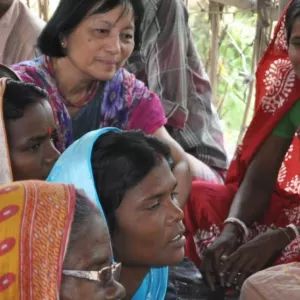Gender responsiveness can make Climate-smart agriculture even smarter!
The impact of climate change on agriculture is undeniable, and it poses a significant threat to global food security. While climate-smart agriculture (CSA) is gaining momentum as a solution, its success depends on its ability to ensure inclusivity and not leave anyone behind. By harnessing the engagement of women in agriculture and simultaneously empowering women, we can not only mitigate

Gender responsiveness can make Climate-smart agriculture even smarter!
The impact of climate change on agriculture is undeniable, and it poses a significant threat to global food security. While climate-smart agriculture (CSA) is gaining momentum as a solution, its success depends on its ability to ensure inclusivity and not leave anyone behind. By harnessing the engagement of women in agriculture and simultaneously empowering women, we can not only mitigate negative effects of climate change but also foster sustainable, resilient, and equitable food systems through CSA.
Persistent Gender Divide in Agriculture
For centuries, women have been the backbone of agriculture contributing significantly to crop production, livestock management, and food processing. As per the 2021-22 report of Periodic Labour Force Survey (PLFS), about 70% of the agricultural labour in India is performed by women. Despite their engagement, women and their role in agriculture is largely ignored when it comes to the evolving landscape of Climate Smart Agriculture. For the longest time, CSA’s technocratic agenda has remained divorced from gender issues, which has critically slowed down its adoption. Research-generated evidence suggests that systemic barriers emanating from the gender differences affects the rate of CSA adoption and continued engagement (Muneri, 2023). In many places, women farmers were the frontrunners in initiating the transitions towards CSA practices. However, their engagement couldn’t be sustained in the long run. Persisting challenges of limited decision-making authority, access to land, financial resources, advisory services, education, technology, and Climate Information Services (CIS) underlie these patterns. Based on this evidence, it won’t be wrong to interpret that CSA can only be effectively and widely implemented if gender goals are better integrated and problems at the household and community levels are well recognised and targeted. Without these steps, we would be otherwise stuck in the loop of creating more technologies but failing at making them work.

